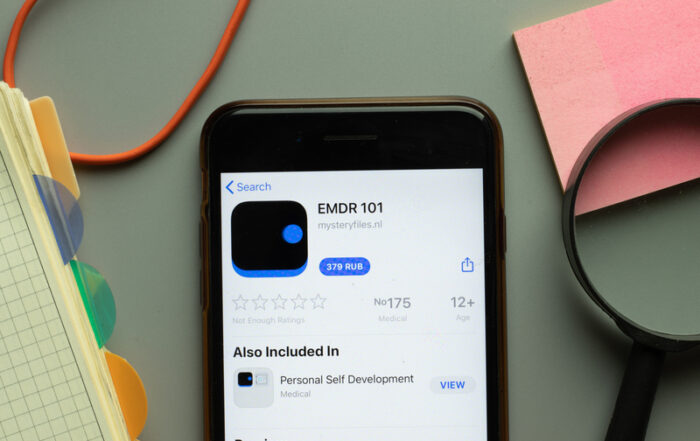Is Anxiety Affecting Every Area Of Your Life?
There’s no sugarcoating how hard it is to live with anxiety. It is a painful physical sensation often generated by distressing thoughts and it can rob you of a life of peace and joy. You may not even know where your anxiety comes from—it’s been part of your life for as long as you can remember.
Perhaps you suffer from panic attacks, racing thoughts, and sleep disturbances. You might have physical symptoms like migraines, chest pain, and nausea. Anxiety can also affect your relationships, causing you to struggle with people-pleasing, setting boundaries, and the need to control what’s going on around you in order to experience safety. If you’re anxious about what others think of you, you may find yourself going out of your way to please them. As a result, you may leave little room for your own needs and feel invisible in your relationships.
“Nothing can harm you as much as your own thoughts unguarded.”
– Buddha

The More You Try To Avoid Anxiety, The Worse It Often Gets
When you’re feeling anxious, it’s human nature to try and avoid the things that make you anxious. The problem is that the more you engage in avoidant behaviors, the worse anxiety generally becomes.
This is why therapy is so important. By working alongside a counselor with specialized knowledge about anxiety, you can learn to manage your stressors and experience deeper healing in your mind and body.
Our Culture Of Comparison Has Turned Anxiety Into A More Widespread Issue
Anxiety is highly prevalent in our culture. It often begins at an early age when young children start to make comparisons between themselves and others. More often than not, these comparisons are unfavorable and lead kids to believe that they’re not good enough, smart enough, or pretty enough. Caregivers often inadvertently lay down this “blueprint,” sowing the seeds for low self-esteem.
In today’s world, this culture of comparison is reinforced through social media, where only the “best self” is presented. Because we don’t see other people’s disappointments on social media, we start to feel like the odd ones out, as if we’re the only ones struggling.
Most Of The Popular Strategies For Managing Anxiety Only Make It Worse
A lot of people try to fight their anxiety. But unfortunately, most of the ways people try to reduce anxiety only serve to reinforce it. For example, when we ruminate about ways to avoid anxiety-producing situations, we make anxiety worse. It’s like throwing gasoline on a fire. The more we think about how to avoid an outcome we fear, the stronger anxiety becomes.
On your own, it’s very hard to get to the source of anxiety. With the help of a therapist, you can put ineffective coping skills behind you and address your anxiety at its root, allowing you to experience long-lasting relief.

Anxiety Therapy Can Help You Stay Mindful, Grounded, And At Peace With The Present
In therapy, you will gain coping skills for reducing your stress activation and learn to differentiate between real and perceived threats.

Anxiety continually generates new “what if” scenarios in every situation, making you think that the worst is always about to happen.
The idea is not to eliminate anxiety, since a little anxiety can help you prepare for stressful situations. Instead, the goal is to regulate it and develop the skills to discern whether or not your anxiety is a real or imaginary threat to your wellbeing. You will learn about how the brain generates anxious responses and how certain thinking patterns create more stress. This can help you identify when your symptoms are about to spike. After all, anxiety often comes from anticipation of stressful future situations. Therapy can help you stay mindful and grounded so that anxiety doesn’t take you out of the present.
What To Expect In Anxiety Therapy Sessions
Treating anxiety requires a holistic approach. It involves growing in awareness of your thoughts, feelings, and behaviors. You will learn to use your body as a warning signal and identify the signs of anxiety that show up in it (sweaty palms, racing heart, etc.). Additionally, we’ll look at the ways you’ve learned to manage your stress and whether or not they actually help. You will learn strategies for reducing or eliminating your distress that do not reinforce anxious behaviors.
A lot of therapy also involves exploring unresolved trauma. Were there relationships in the past that made you feel like you’re not good enough? Have any experiences made you feel unsafe in your own body? Therapy is a chance to answer these questions and uncover the origins of your anxiety. Doing so leads to tremendous insight and makes the practical work of reducing anxiety much easier.
“Mindfulness teaches Us to be still and curious in the midst of adversity, to allow for its presence, to explore its landscape and to befriend it.”

Tailoring Your Anxiety Treatment Plan
There are many different approaches that inform my work, but when it comes to anxiety, one of the most powerful is Mindfulness-Based Cognitive Therapy. Anxiety takes you out of the present and makes you ruminate on the future, creating numerous maladaptive thought patterns like “what if” scenarios, catastrophizing, and all-or-nothing thinking. Mindfulness can help you stay grounded in the moment through sensory-awareness techniques and build the emotional tolerance to accept your present experience. You will learn about the wisdom of leaning into your experience and learning from your emotions rather than avoiding them.
The cognitive work of my practice focuses on creating space between you and your thoughts. It’s so easy to take your thoughts at face value and go through life without questioning them. In therapy, I want to help you separate yourself from your thoughts. You will learn to challenge the things you tell yourself (such as “I’m no good”) instead of identifying with them.
As long as you are patient with yourself and committed to the work of cultivating new skills, I am confident that I can help you find relief from anxiety. With the right interventions, you can lower the intensity of your symptoms and improve your confidence and self-esteem.
You May Have Some Questions About Anxiety Therapy…
Will therapy make me more anxious?
My first aim in therapy is to help you feel safe and unconditionally accepted. Once you feel this way, it becomes much easier to work through your anxiety without making it worse. After all, I understand that the very idea of going to therapy can be stressful—especially if you struggle with social anxiety. That’s why I prioritize safety and trust above all.
I feel like I’ve already tried everything. What will I learn from you that’s different?
Many solutions out there propose a one-size-fits-all approach to anxiety therapy, but that is not effective. More effective is to take an eclectic and comprehensive approach. The goal is to discover the source of your anxiety, figure out how it is maintained and reinforced, and use empirically-based strategies to treat it. This is what creates lasting change.
I’ve felt anxious for as long as I can remember. What if I can’t change?
It’s very normal to feel like you’ll always be anxious if you’ve felt that way your whole life. But a lot of times, that’s because the origins of anxiety haven’t been determined. Once we unpack where your anxiety comes from, it becomes much easier to reduce and eliminate it. My goal is to pinpoint the root cause of your anxiety and use that information to determine what approach is best for you. For instance, if your anxiety is the result of unresolved trauma, then we can take a trauma-focused approach to counseling.
Anxiety Does Not Have To Consume Your Life Anymore.
If you are tired of living with painful anxiety, I want to encourage you that anxiety is treatable!
I invite you to reach out for help. To get started, you can fill out the scheduling form or call 484-743-1776 to set up a free, 15 to 30-minute phone consultation.
Recent Articles
What is EMDR?
If you haven’t heard of EMDR, you aren’t alone. There are many approaches to treating mental health conditions, and EMDR is only one of many. Even if you have heard of it, you might [read more]
Finding Ways to Heal from Childhood Trauma
According to the CDC, at least 60% of American adults have experienced some form of trauma as a child. That’s a staggering statistic that could be impacting people in your life right now. It might even be impacting you.






